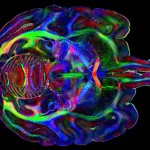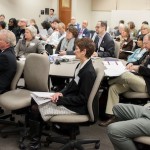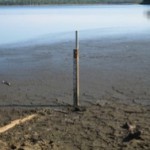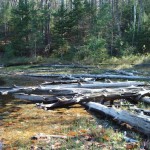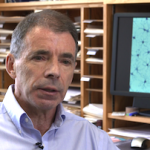Tag Research
Winners of Vilas Associates Competition announced
The Graduate School has announced 26 faculty winners of the Vilas Associates Competition. Read More
UW-Madison flu expert recognized for research excellence
Yoshihiro Kawaoka, a professor of virology at the University of Wisconsin–Madison School of Veterinary Medicine known for his groundbreaking work on influenza, has received the 2014 Excellence in Research Award from the Association of American Veterinary Medical Colleges (AAVMC). Read More
Study challenges claims of single-sex schooling benefits
As many American public schools adopt single-sex classrooms and even entire schools, a new study finds scant evidence that they offer educational or social benefits. Read More
What’s with sloths’ dangerous bathroom breaks? Maybe hunger
For the three-toed sloth, a trip to the restroom is no rest at all. It's a long, slow descent into mortal danger from the safety of home among the upper branches of the forest. Read More
Wisconsin researchers identify key pathway for plant cell growth
For plants, the only way to grow is for cells to expand. Unlike animals, cell division in plants happens only within a tiny region of the root and stem apex, making cell expansion the critical path to increased stature. Read More
Contest seeks amazing science images
To highlight the visual and scientific value of scientific imagery, the fourth annual Cool Science Image Contest is soliciting the best images from students and faculty and staff scientists on the University of Wisconsin–Madison campus. Read More
Education, surgery try “speed dating” for research
Dr. Craig Kent, chairman of surgery, said he hopes that it is at least as successful as a 2010 “speed dating” event with engineering faculty. That one resulted in several research partnerships between surgeons and engineers. Read More
Scientists ID 10-year water-level cycle in Great Lakes basin; say current lows buck trend
For at least the last 70 years, lakes and aquifers in northern Wisconsin have followed the same pattern - after higher than average peaks, water levels spend about 10 years on a downward trend before abruptly spiking up again, only to repeat the decade-long fall back to low-water conditions. Read More
UW-Madison scientists to use high-density EEGs to benefit epilepsy patients
University of Wisconsin researchers pioneered the use of high-density electro-encephalograph (HD-EEG) technology to study sleep patterns and the effects of meditation. With support from a local grassroots organization, Lily's Fund for Epilepsy Research, UW–Madison researchers will now evaluate how this advanced technology might benefit people with epilepsy. Read More
Fish forced into the ‘foraging arena’ when lakes lose their trees
In attempts to predict what climate change will mean for life in lakes, scientists have mainly focused on two things: the temperature of the water and the amount of oxygen dissolved in it. But a new study from University of Wisconsin researchers is speaking for the trees - specifically, the dead ones that have toppled into a lake's near shore waters. Read More
Grad student’s proteins cut a rug, win ‘Dance Your Ph.D.’ competition
Graduate school research can get long and tricky and complex beyond the easy understanding even of your fellow grad students. Unless it has a beat, that is, and you can dance to it. Read More
A shift in stem cell research
A team of engineers at the University of Wisconsin–Madison has created a process to improve the creation of synthetic neural stem cells for use in central nervous system research. Read More
Study identifies gene mutation as cause of canine tremor disorder
Weimaraners – sleek, athletic dogs originally bred for hunting - are known for their striking, silver-tinged coats. Unfortunately, they also are known for a rare tremor disorder reported widely throughout North America and Europe. Read More
CALS researchers developing novel treatment for septic shock
By the time doctors diagnose septic shock, patients often are on a knife’s edge. At that point, for every hour that treatment is delayed, a person’s risk of death rises an alarming six percent. Read More
Even or odd: no easy feat for the mind
Even scientists are fond of thinking of the human brain as a computer, following sets of rules to communicate, make decisions and find a meal. Read More
Documentary connects multiple sclerosis, Vikings and Nordic skiing
Multiple sclerosis (MS), a neurological disease that affects more than 400,000 Americans, attacks the nervous system and causes many symptoms, including difficulty moving. But many who suffer from the disease defy its effects by maintaining an active lifestyle. Read More
Poverty influences children’s early brain development
Poverty may have direct implications for important, early steps in the development of the brain, saddling children of low-income families with slower rates of growth in two key brain structures, according to researchers from the University of Wisconsin–Madison. Read More







